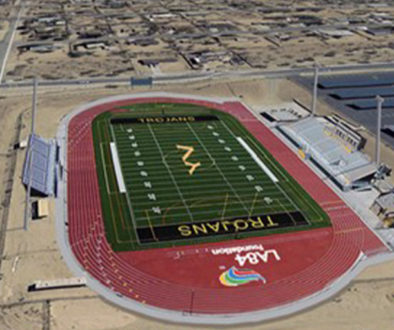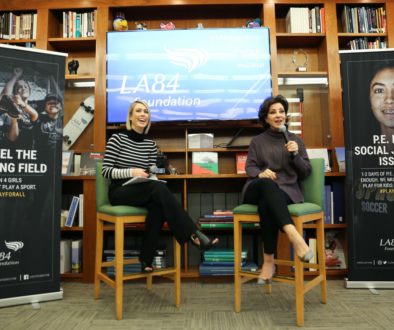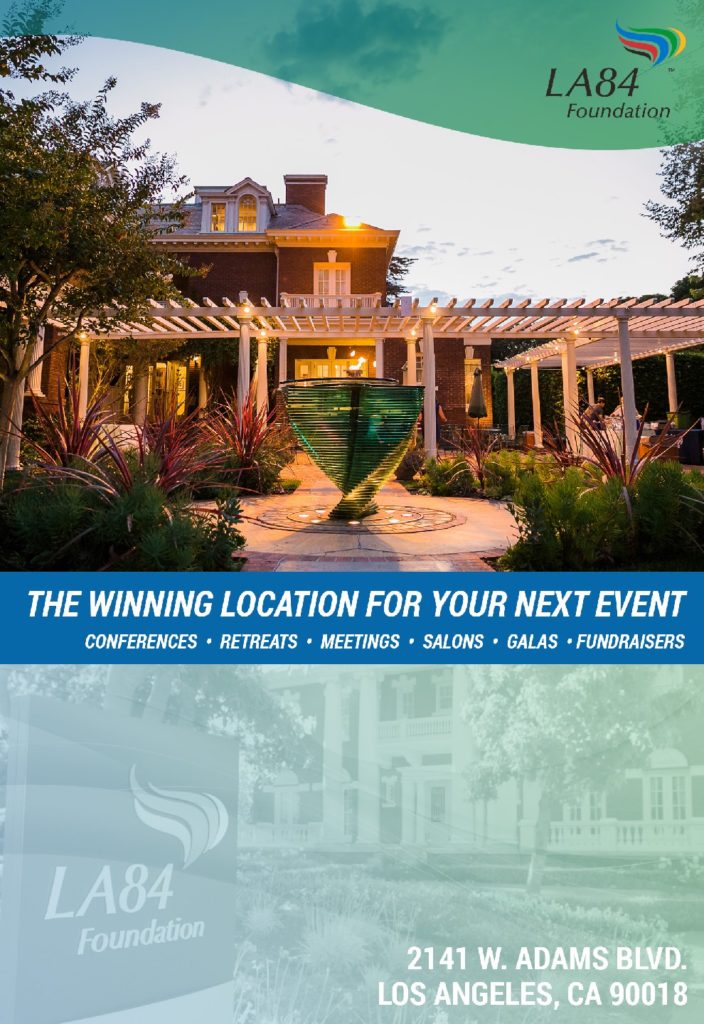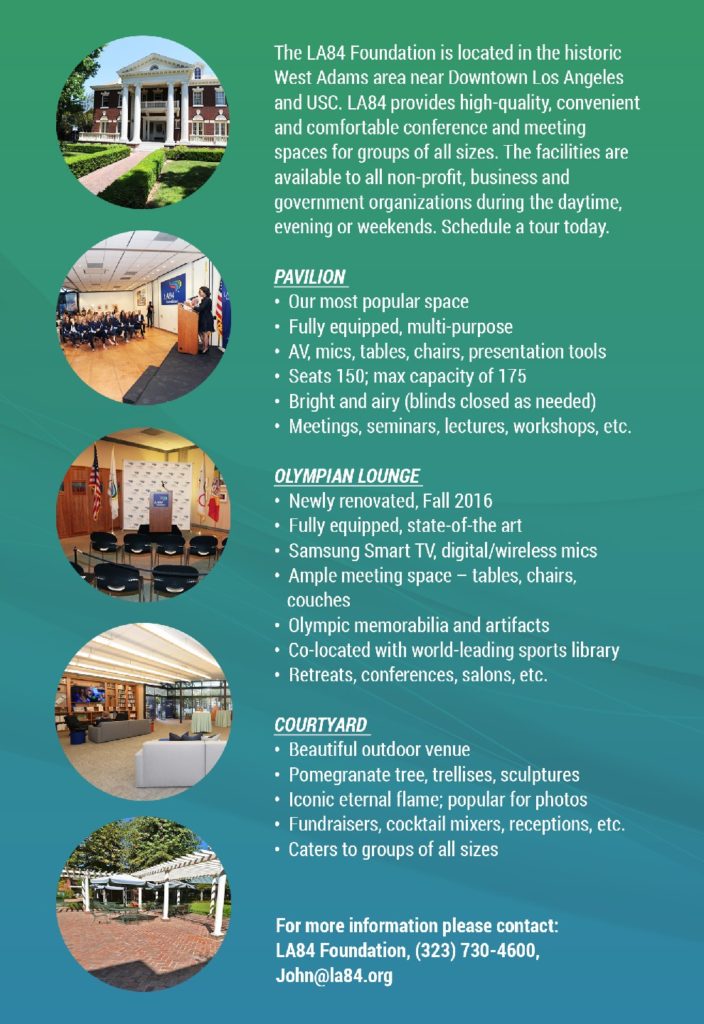SL Interview: Teacher, Coach Stuart Krohn Talks About Inner-City Rugby
Rugby is among the fastest growing youth sports in the country. And, while the total number of youth playing rugby remains modest when compared to soccer, football, volleyball, basketball, baseball and softball, the sport is poised to receive a huge boost in 2016, when the sport returns to the Olympic Games for the first time since 1924. The United States won the gold medal, defeating France, 17-3.
Since 2003, former professional player Stuart Krohn has spearheaded an effort to promote youth rugby in South Los Angeles. An English teacher with the Inner City Education Foundation (ICEF) charter group, Krohn has organized boys and girls teams among students who attend ICEF’s 14 schools. Approximately 80 percent of ICEF’s 4,200 students are African-American. Richard Riordan, the former mayor of Los Angeles, is the chairman of the board of ICEF.
A major component of ICEF’s rugby program involves taking students abroad to compete in rugby hotbeds like South Africa and Hong Kong. Earlier this year, Krohn led boys and girls rugby teams to New Zealand to play youth squads in that rugby-mad country. Director James Brown filmed the tour and interviewed the players about living in South Los Angeles and playing a “new” sport. His feature documentary, titled “Red, White, Black & Blue,” shows how sport can impact youth and connect cultures separated by thousands of miles.
“SportsLetter” recently interviewed Stuart Krohn, an executive producer of the film, about the ICEF rugby program, the new documentary, and rugby at the 2016 Olympic Games.
— David Davis
SportsLetter: What is your rugby background?
Stuart Krohn: I started playing rugby when I went to college, at the University of Colorado. I transferred to UC Santa Barbara and played there. For my junior year, I went to study in France. I played rugby there and that led to a professional contract with the Toulouse club. I dropped out of school to play rugby for a second year in France. Then I came back to UCSB and was the player-coach of the team. We were ranked fourth in the country that year, and I was an All-American.
I decided, after I graduated from UCSB and after my experience in France, that I was going to pursue my passion: to travel the world and play professional rugby in the best places. So, I went to New Zealand and played for the North Shore club for two years. I went to South Africa and played for the College Rovers club for a couple of years. I went to Hong Kong and played for the Valley club for a total of eight years. Then, I came back to the States and did a graduate program in creative writing at Dartmouth while I was coaching the rugby club there.
SL: How did you come to start a youth rugby program in Los Angeles?
SK: I knew that, after Dartmouth, I wanted to come to an urban area and start a rugby program. I was particularly interested in Southern California because the weather is conducive to rugby year-round. In 1999, I started coaching and playing for the Santa Monica Rugby Club. Through the club, I found out about ICEF and View Park Elementary School.
SL: What is ICEF?
SK: It stands for the Inner City Education Foundation. They started View Park Elementary School, a charter school that went from kindergarten through fifth grade. That was the flagship school, and I was hired to teach English. At first, the kids were too young for rugby. A few years later, once View Park expanded into a middle school, and the oldest kids were in the eighth grade, I felt that they were ready for rugby.
Then, we applied for a grant from LA84 Foundation. LA84 gave us $5,000, and that allowed us to start the program with the middle school. The grant enabled us to pay for uniforms and the buses. We received another grant in 2009 from LA84 Foundation and again in 2011. We are very grateful for our relationship with LA84 Foundation, and we hope it continues for a long time.
SL: How has the ICEF rugby program evolved over the years?
SK: When we started, in 2003, we only had a girls and a boys team from View Park Middle School. We played only flag rugby the first two years — just friendly matches. Then, ICEF opened View Park High School and other schools, including Frederick Douglass Elementary School and Frederick Douglass High School, which are located right next to LA84 Foundation.
Now, we serve 14 schools [within the ICEF charter group] and have kick-started another rugby program at a high school outside of ICEF. We introduce rugby to over 3,000 students every year in P.E., electives, after-school, and in a tackle rugby program.
SL: Where do the players practice?
SK: None of our schools have grass. None of our schools have fields. We have a bus that goes around and picks up the kids from all the different schools. We train at Jesse Owens Park [in Los Angeles].
The high school kids go from December to May. The middle school kids go from January to March. During the fall, we go around to the schools and introduce rugby to the kids.
SL: You’re obviously passionate about rugby, but why introduce a sport that most kids know nothing about?
SK: I thought the kids would love rugby because it’s this great combination of football and basketball. It’s this perfect fit. Rugby allows these kids to get to a park and be able to run around and throw their energy out. Also, I wanted to expose rugby to an element of America that traditionally has not been exposed to it. I mean, you can find rugby programs at private schools and some colleges, but what about kids from the inner city?
SL: What’s been the biggest challenge introducing rugby to inner city youth?
SK: It’s something they were not aware of, they’re not used to, so opening up their minds to something that they didn’t know about is a huge challenge. But once they see the benefits, they get it, because we really use rugby to direct the kids to college. It’s just another tool to develop the characteristics they need to persevere through college and life.
The payoff is that they feel unique. They feel special. And, they should feel special because they’re pioneering something in a community that doesn’t know anything about rugby. It’s taken some of them around the world.
SL: What are the advantages, in terms of going to college, for a kid to play rugby versus football or basketball?
SK: Rugby really sticks out on a college application. The colleges see that these are kids willing to take a risk and step outside the box. That’s what many colleges are looking for. Plus, at many colleges, they can continue playing club rugby.
But this isn’t about getting kids into the colleges with the best rugby teams. We want to get them into the best college that will prepare them for life. We’re trying to prepare kids not only to get into college, but to stay in college. All kids have to go through periods where they have to face adversity, persevere, and get through it, even though it’s not easy. If you don’t have many examples from your community, where everybody’s going to college, where it’s a common denominator, it’s very difficult.
SL: Rugby is increasingly popular among youth across Southern California, with thousands of kids playing and more clubs being organized. Why do you think that is?
SK: First off, it’s inexpensive. You only need a ball and a field. But that’s just a benefit. It’s because rugby is a really fun game to play. If kids like to run with a ball and they like to tackle, you can’t beat it. It’s a player’s game. Everybody’s a quarterback. Everybody’s a decision-maker. The coach preps the players, but once the game starts, the players are calling all the plays. It’s like basketball that way, but there’s no timeouts. It’s two long halves.
I also think it goes beyond the physical aspect. Rugby is about camaraderie. After the games, we sit down with the other team and eat with them. That’s part of the rugby tradition that’s really important. The kids love that, meeting the other team.
SL: What does the sport of rugby teach kids?
SK: It teaches them how to work as a team, as a group, to get through adversity. It teaches them that it’s okay for them to release their emotions in a controlled way. It teaches them to take leadership, to take control of situations. We let the kids work things out. We just guide them.
The game doesn’t stop, so everything is on them. They have to work through everything together, as a group. It’s intense, but it’s incredibly satisfying for them.
SL: When did you begin the international component of the ICEF rugby program?
SK: We started that in 2006. It began with my ex-pat rugby friends, from Hong Kong and other places, when they came to visit in L.A. They would come to the classroom to talk with the kids, and the kids had all these questions. One of my friends, Tom Hall, said that these kids needed to go and visit Hong Kong and other places. I said, “Let’s do it.”
So, we did. We started with two trips of kids. Then we took four kids to New Zealand. Then, we took a team of boys to England. We’ve done nine trips so far.
SL: What does this sort of travel teach the kids?
SK: These trips teach them that they live in a much bigger world than what they previously were aware of, that we live in a global economy. If they want to participate in that, they have to know about it, be aware of it. They have to have been outside the community to have a broader perspective of the world.
The mission of our schools is to prepare kids for college. Our focus is college, college, college. Rugby connects them to the bigger world outside their community. That’s especially important for urban youth, because they live in a very closed environment.
SL: How do you finance these trips?
SK: The kids sell raffle tickets — they sell 100 raffle tickets at $10 each — so they raise $1,000 that way. The rest comes from philanthropic support and grants.
SL: What’s the next trip you’re planning?
SK: The Hong Kong Sevens tournament is the biggest sevens tournament in the world. That’s where we’re taking the kids in March of 2013. We’ll start in Beijing on a cultural exchange. Then, we’ll go to Hong Kong. The kids will get to watch the national teams play each other and they’ll play in the international youth tournament.
SL: The documentary follows the ICEF rugby team on its trip to New Zealand earlier this year. How did the film come about?
SK: We’ve been approached by quite a few different people to make a documentary about the program. Somebody even wanted to make a feature film. So, we were exploring different avenues. [Director] James Brown and the film production company, Cloud South, heard about our program through the [New Zealand] consulate general, John Mataira, who’s based here in L.A. We met when I was in New Zealand at the Rugby World Cup last year and began discussions.
I wanted to have a filmmaker from outside our community because he could look at it totally objectively. We didn’t want it to be manipulated. We wanted it to be honest.
SL: Much of the filming took place in March of 2012, when the kids toured New Zealand and played youth teams there. Why did you want to make a film about the trip?
SK: I knew it was going to be a spectacular trip because what makes our program exceptional is the exposure we offer our kids to other cultures in the world. It’s not just exposing our kids to the world; it’s exposing the world to our community. It’s a mutual thing: changing hearts and minds, ours and theirs.
The African-American community, in particular from South Los Angeles, is one of the most stereotyped groups in the world. It’s amazing the response we get wherever we go. They think we’re all about gangs and the riots. People don’t know because they don’t go there.
SL: The film shows the kids from Los Angeles bonding with kids in New Zealand. What was the link beyond rugby?
SK: It was interesting to see the commonality between the two groups. They had so much in common with the Maori kids that we met from the town of Turangi in terms of culture, family, music. They shared this feeling of living within a country, yet feeling separate, marginalized, stereotyped. They immediately sensed that common bond.
It was the same thing when we have traveled to Tahiti and to South Africa. There was this feeling of mutual respect. They could relate to each other. And, that makes the kids feel better about themselves.
When you live in a place like South L.A., where you often feel defined by the environment, it’s hard to separate yourself from that, as an individual. Once you leave that environment, then you can look in the mirror and say, “Who am I? How do I act in the world?”
That’s what I experienced, and I think that’s why I want to take these kids around the world. I want them to have that same eye-opening experience that I had. We all want to have that.
SL: What audience is the film aimed at?
SK: The film is aimed at youth. We felt we had the opportunity to inspire marginalized youth around the world. We wanted them to know that there are opportunities for everybody out there if you look for them, and it might be doing something that they’ve never heard of before. We wanted to inspire them to take chances. If more people become aware of ICEF rugby and the game of rugby as a result, then that is okay, too.
SL: What most surprised you about the film?
SK: I was surprised how the editor and director, James Brown, was able to so skillfully weave several compelling stories out of hundreds of hours of footage. He is brilliant. I was also surprised by the strong screen presence our students had. I am always amazed at how resilient our players are — not just on the field, but in life. They inspire me.
SL: What’s next for the film?
SK: We have submitted “Red, White, Black & Blue” to film festivals around the U.S. and the world, and just heard that we’ve been accepted into the Idyllwild CinemaFest for 2013. We are now waiting to hear back from other film festivals. We are also in early discussions with distributors, with no deals yet. We think the movie has national and global appeal.
SL: The danger of concussions and head injuries in youth sports has been well documented. How does that affect rugby?
SK: It’s something I worry about because we’re responsible for these kids. Rugby is an extreme sport, there’s no question about that, so we have to be very careful. There’s not as many concussions in rugby as you have in football. There’s not as many head-on-head collisions in rugby, because you have to wrap in rugby, and you don’t wear helmets. We just have to follow the whole protocol for safety and be extra vigilant at all times.
SL: How has working with youth changed the way you approach rugby?
SK: I was a professional rugby player and a professional rugby coach. Everything was about winning for me. Now winning has a totally different definition for me. I mean, I still want to win games — we all want to win games. That’s what we play for. But winning for me is about growth. Winning is about helping kids grow into strong, independent young men and women who are able to work as a team with other people and have the characteristics to be successful college students, workers, husbands, wives.
SL: Rugby will be included at the 2016 Rio Olympic Games. What does that mean for the sport?
SK: It means everything. Americans care about the Olympics, and rugby’s inclusion in 2016 is going to make everyone aware of this wonderful global game. They’re going to play seven-a-side rugby at the Olympics, so it’s a very fast and exciting version of the game.
SL: Do you think the U.S. teams will qualify for the 2016 Olympic Games?
SK: The women’s team will qualify for sure. We have some phenomenal women players in this country, with incredible speed and strength. It’s going to be tough for the U.S. men’s team to qualify. The men who play for New Zealand and South Africa — they’re Division I-level athletes. We need to get the equivalent type athletes involved here in the States, and that means exposing the game to more elite athletes if we want to be competitive.




